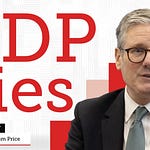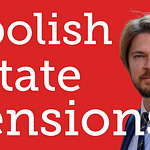Join Reem Ibrahim, Communications Director at the Institute of Economic Affairs, for a conversation with Simon Heffer, Telegraph columnist and Professor of Modern British History at the University of Buckingham. In this briefing, they discuss the current state of British conservatism, the challenges of public sector unions and bureaucracy, and their perspectives on Donald Trump's tariff policies and potential implications for the UK.
Heffer shares his views on how conservatism has lost its philosophical roots during the 2010-2024 Conservative governments and what Kemi Badenoch might bring as party leader. He draws parallels between the current economic situation and the 1970s, particularly regarding trade unions and public spending, suggesting that a future Conservative government would need to conduct an audit of public sector jobs to reduce bureaucracy.
The discussion also covers the potential future direction of the Conservative Party, with Heffer predicting that Badenoch will likely adopt a Thatcherite approach focusing on smaller government and lower taxation. Heffer also recalls his memorable first meeting with Friedrich Hayek at the IEA in 1981, providing a personal connection to the think tank's intellectual foundations.
The Institute of Economic Affairs is an educational charity, it does not endorse or give support for any political party in the UK or elsewhere. Our mission is to improve understanding of the fundamental institutions of a free society by analysing and expounding the role of markets in solving economic and social problems.













